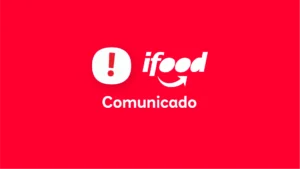In August 2022, iFood joined the Instituto Capitalismo Consciente Brasil and joined the list of companies that recognizedly adopt a cause as their purpose and are committed to generating value for everyone involved in their business, from customers to shareholders and society.
The company's adherence to this movement, which began more than a decade ago in the United States, is a natural consequence of the way it sees the role of the private sector in society. With the “big dream” of “feeding the future of the world”, it is not new that iFood has been making commitments to its stakeholders.
Part of these initiatives, and their results, are gathered in the Impact Report, the company's first ESG report, which has just been released and details the impact of its actions on Education, Environment It is Inclusion from March 2021 to date.
But, after all, what does Conscious Capitalism, as a business philosophy, mean in practice for a technology company already committed to the issue of generating value for society?
In an interview with iFood News, Diego Barreto, vice-president of Finance and Strategy at iFood and author of the book “New Economy”, explains the challenges of being part of this movement and the opportunities that only an agile company can take advantage of.
iFN – What does Conscious Capitalism mean in the New Economy?
Diego – The difference of New Economy for the “old” economy is that, as a rule, it presupposes a very strong change in a series of societal paradigms, both from a behavioral and regulatory point of view. And this is exactly what makes the difference conscious capitalism in the New Economy: it not only changes society but also has to deal with the consequences of these changes.
This is where the big discussion comes. We need to not only make change for the good, balancing all stakeholders, but also creating the structures for this and worrying about these regulatory and behavioral changes, with a vision that doesn't even exist yet.
An example: when thinking about the gig economy, from the perspective of on-demand work, this did not exist in Brazil ten years ago in the way we see it today. iFood and other companies began this process of change without even having tried it. It's much more complex than simply making something that already exists. That's the difference.
iFN – When you think about work at gig economy, what are the challenges for this model?
Diego – Brazilians have a notion of work that is already established. People work a contracted schedule, usually for five or six days a week. We have become accustomed to working in a way that does not take into account the employer's demands.
The big point is that the gig economy It is changing the concept of how workers relate to their time and to companies. The legislation is not ready for this and people are adapting.
So there is one issue, which is to reach a consensus with public opinion on these concepts, and another, which is the discussion of a regulatory construction. Within this concept, we need to define values, what each party will bring to the table, what each person considers acceptable or non-negotiable.
iFN – Which points of conscious capitalism are easiest to put into practice? And the most difficult ones?
Diego – Of everything that involves conscious capitalism, the topic that is most advanced — I wouldn't say easy — is that of diversity, because this has already been under discussion in Brazilian companies for more than a decade. It's far from perfect, but it's moving forward.
ESG [environmental and social governance] is another topic that is also advancing in Brazil, actions have already begun. The discussion of gig economy, no. This is still in its infancy, the Brazilian State has not even stopped to look at this issue. This is the degree of maturity that I see in each of these three major discussions we have today on iFood.
iFN – How does conscious capitalism go beyond ESG?
Diego – I think it's the timing, is finding the right time for things. The previous model of capitalism was a system that did things and, decades later, looked back to see what went wrong and started thinking about how it could be fixed. Conscious capitalism presupposes different timing. Nobody is going to start the most perfect thing possible from scratch, it is impossible to demand this from human beings, it is complex.
What works is to act as quickly as possible. iFood today does very relevant work in everything that involves reducing the use of plastic, both by improving the product and making consumers order fewer plastic items and by creating relevant partnerships, like Suzano's, to take to the restaurant, at an acceptable price, materials that replace it.
In the logic of capitalism, a company like ours, with ten years of existence, is a baby and shouldn't even be worrying about this issue. In the logic of conscious capitalism, companies anticipate solutions.
My team today has 55% of women in leadership and 35% of people of color. This is a very special number for a ten-year-old company, which at this stage of business consolidation should have its head elsewhere. In conscious capitalism, you anticipate this timing.
iFN – Does being a technology company help you follow the conscious capitalism playbook?
Diego – It's not that it helps: it solves it. Being a technology company gives us two attributes. The first of these is the ability to define the “what”, “when” and “how”. If at this point I want to change an attribute of the iFood application, just go there and change it. Instantly, 44 million Brazilians who use the app per year will be affected by this change.
The ability to change the product instantly is sensational, both for coming up with ideas that can generate impact and for correcting errors. Furthermore, the technology is scalable. If my solution works, it will go from 40 million Brazilians to 100 million overnight. The physical company will take a few years to build a new building, a new factory. We do not.
iFN – How is iFood already generating value for customers? stakeholders?
Diego – In various ways. The first of these is to have a large listening ability. Once we listen a lot, we gain the ability to make the necessary adjustments in the correct way.
The second point is the ability to adjust the product to achieve spectacular results. The change we made to reduce shipping of plastic items in 2021 impacted 200 million orders. It's a huge impact.
When we think about the ability to form partnerships, this agility typical of New Economy companies leads us to find solutions when, individually, this would take years. A partnership we made with VOLTZ to develop the electric motorcycle had this effect. There needed to be integration between companies to generate a solution like this.
iFN – Are you optimistic about iFood’s path towards conscious capitalism?
Diego – I have security, it’s not optimism. I know the shareholders, I know the company's management. Looking at who people are and what their values are, that's where this security comes from.


